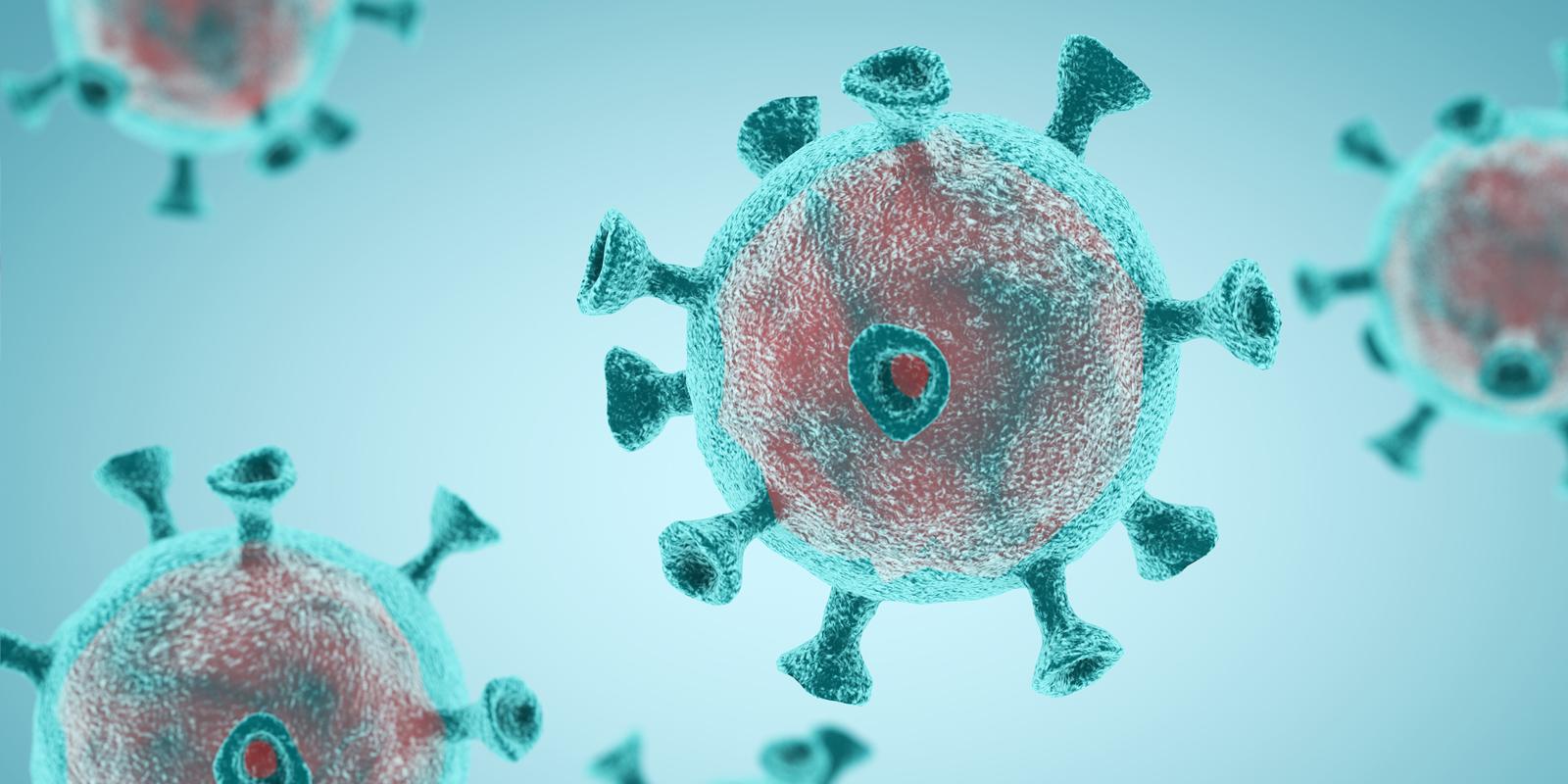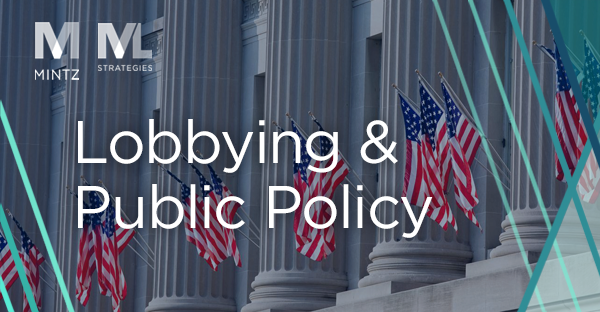
COVID-19 Viewpoints
Filter by:
Bioethics in a Pandemic: Draft Framework for Equitable Allocation of COVID-19 Vaccine
September 4, 2020 | Blog | By Bridgette Keller, David Friedman
As you know, the Draft Preliminary Framework for Equitable Allocation of COVID-19 Vaccine (the “Draft Framework”) was released earlier this week, and we are highlighting its major sections as stakeholders prepare to submit comments by Friday, September 4th. Building on the lessons learned from past allocation frameworks, this post highlights the key provisions of the Draft Framework.
Read more
Bioethics in a Pandemic: Uncertainties in Applying the Draft Framework
September 4, 2020 | Blog | By Bridgette Keller, David Friedman
Continuing with our review of the Draft Preliminary Framework for Equitable Allocation of COVID-19 Vaccine (the “Draft Framework”), this post highlights a number of uncertainties that will be faced in implementing the proposed allocation. For additional background on the Draft Framework, please see our earlier posts in the Bioethics in a Pandemic series. The final chapter of the committee’s discussion draft identifies specific uncertainties that could present obstacles to the proposed allocation plan’s implementation. Ultimately, a vaccine allocation framework must remain flexible and adaptive when faced with updated scientific evidence and developments like those listed above. These considerations, as well as the public comments, will continue to be inform the development of the framework.
Read more
Bioethics in a Pandemic: Laying the Foundation for the Draft Framework for Equitable Allocation of a COVID-19 Vaccine
September 3, 2020 | Blog | By Bridgette Keller, Lauren Moldawer
Earlier this week, a committee of the National Academies sponsored by the CDC and NIH released its Draft Framework for Equitable Allocation of COVID-19 Vaccine. This Draft Framework builds on the successes and challenges of past vaccine allocation frameworks, as well as current frameworks for allocating scarce COVID-19 resources. This blog reviews these past frameworks that laid the foundation for the committee to develop its decision-making framework.
Read more
Bioethics in a Pandemic: Johns Hopkins Offers Ethics Framework to Support Vaccine Distribution Decisions
September 2, 2020 | Blog | By Bridgette Keller
The Johns Hopkins University Center for Health Security (the “Center”) has been providing thought leadership related to the novel coronavirus and the COVID-19 pandemic since the beginning of the year. Two of the Center’s recent reports relate directly to our discussion on vaccine distribution. The first is an interim framework for COVID-19 vaccine allocation and distribution (the “Report”), and the second focuses on the public’s role in COVID-19 vaccination. Here, we provide a high-level overview of the first report. We’ll dive into the second report in a separate blog post.
Read more
Hot off the Presses! Draft Preliminary Framework for Equitable Allocation of COVID-19 Vaccine Just Released
September 1, 2020 | Blog | By Bridgette Keller, David Friedman
Earlier today, the Committee on Equitable Allocation of Vaccine for the Novel Coronavirus released preliminary guidelines on the allocation of initial and limited supplies of a forthcoming COVID-19 vaccine. Once finalized, this framework will inform how policymakers and health professionals should initially prioritize vaccine recipients, taking into account factors such as mitigating community spread, maximizing public health benefits, and ensuring equitable vaccine access for underserved communities.
Though the turnaround time is short, there are two ways for interested stakeholders and member of the public to submit feedback regarding the draft plan:
1. Speak at TOMORROW’s Public Listening Session (September 2, 12 PM EDT). Speakers must adhere to a strict 5-minute time limit and submit their interest in speaking in advance.
2. Submit Written Comment by September 4 at 11:59 PM EDT. Comments and uploaded materials will be made available in the Committee’s Public Access File and should be submitted at this link.
Read more
Though the turnaround time is short, there are two ways for interested stakeholders and member of the public to submit feedback regarding the draft plan:
1. Speak at TOMORROW’s Public Listening Session (September 2, 12 PM EDT). Speakers must adhere to a strict 5-minute time limit and submit their interest in speaking in advance.
2. Submit Written Comment by September 4 at 11:59 PM EDT. Comments and uploaded materials will be made available in the Committee’s Public Access File and should be submitted at this link.
Bioethics in a Pandemic: Learning from the Past
September 1, 2020 | Blog | By Bridgette Keller, David Friedman
As we continue to discuss the ethical considerations related to the distribution of a safe and effective coronavirus vaccine, it is important to consider lessons learned from other pandemics. Though the particular facts of past pandemics of course differ from those of COVID-19, the goal of public health has always been to promote and protect the health and well-being of a population. Similarly, the ethical distribution of resources amid any pandemic is supported by the balance and tension among the four ethics principles: autonomy, justice, beneficence, and nonmaleficence. Here, we look at lessens learned from the poliovirus, ebolavirus, and 2009 H1N1 pandemics, as well as the National Pandemic Strategy related to vaccine distribution.
Read more
Bioethics in a Pandemic: The Basics
August 26, 2020 | Blog | By Bridgette Keller, David Friedman
Before we continue our Bioethics in a Pandemic series, we thought it would be helpful to provide a quick overview of the various principles that inform ethical decision-making in the health care setting.
As you might imagine, providing health care to individuals with diverse background and values presents ethical choices for health care professionals every day, throughout the entire health care system – providers, administrators, policymakers, insurers, employers, and even the health care lawyers! Well-recognized bioethics scholars Tom Beauchamp and James Childress offer a principle-based approach to guide ethical decision-making in health care. The four principles are (1) Respect for Autonomy, (2) Nonmaleficence, (3) Beneficence, and (4) Justice.
Read more
As you might imagine, providing health care to individuals with diverse background and values presents ethical choices for health care professionals every day, throughout the entire health care system – providers, administrators, policymakers, insurers, employers, and even the health care lawyers! Well-recognized bioethics scholars Tom Beauchamp and James Childress offer a principle-based approach to guide ethical decision-making in health care. The four principles are (1) Respect for Autonomy, (2) Nonmaleficence, (3) Beneficence, and (4) Justice.
NASAA’s COVID-19 Task Force Uncovers Investment Scams Related to the Pandemic
August 26, 2020 | Blog | By Jason Burrell
In response to the COVID-19 pandemic, the North America Securities Administrators Association (NASAA) put together a task force in April 2020 specifically targeted to use “online investigative techniques to identify websites and social media posts that may be offering or promoting fraudulent offerings, investment frauds, or improper unregistered regulated activities” which were related to any aspect of COVID-19.
Read more
Executive Orders, Administrative Court Orders, and Legislation: The Ever-Changing NY Landscape on Foreclosures, Evictions, and Out-of-State Travel [Updated August 25, 2020]
August 26, 2020 | Blog | By Therese Doherty, Lexie Gallo-Cook
The landscape for foreclosures and evictions in New York State is constantly evolving. With the entire State of New York in Phase 4 of New York Forward, the courts have begun to reopen (at least virtually) and certain foreclosure proceedings have resumed. Eviction proceedings remain stayed as against those commercial and residential tenants who demonstrate COVID-related hardship.
Read more
OCR Updates Guidance to Clarify That Health Plans May Contact Recovered COVID-19 Patients About Plasma Donation
August 25, 2020 | Blog
As we discussed in our previous blog post, the Department of Health and Human Services’ Office for Civil Rights (OCR) released guidance this past June to address how health care providers could contact, in a HIPAA-compliant manner, recovered COVID-19 patients to provide them with information about donating blood and plasma to potentially help other COVID-19 patients. On August 24, OCR released an updated version of that guidance to address similar communications from health plans. The amended guidance provides that health plans may also reach out to recovered COVID-19 patients about blood and plasma donation, subject to the same restrictions applicable to health care providers.
Read more
Trends in COVID-Era Renewables Tax Credit Proposals
August 21, 2020 | Blog
This article summarizes the most recent pandemic-era proposals for wind, solar, and carbon capture federal tax incentives and attempts to discern potential trends for the future.
Read more
Bioethics in a Pandemic: Vaccine Distribution
August 19, 2020 | Blog | By Bridgette Keller, David Friedman
After months of stay-at-home orders, quarantine protocols, social distancing, and back-to-school planning, the ever- present question on everyone’s mind is, When will we get back to business as usual? For many, the answer involves discussion of a safe and effective vaccine, including when it will be available and who will be able to get it. Even though a vaccine likely won’t be available until 2021 at the earliest, experts are already thinking about how to distribute it. This post is the first in a blog series that will consider the various bioethics issues and principles related to the COVID-19 pandemic.
Read more
Recent DOJ Comments Shed Light on Expected Civil Enforcement of COVID-19 Cases
August 18, 2020 | Blog | By Nicole Henry, Karen Lovitch
Comments made by Department of Justice attorneys during a recent webinar provided insight into the government’s civil enforcement priorities related to the coronavirus pandemic. In particular, government attorneys expect that civil enforcement related to COVID-19 relief funds will focus on certifications made by applicants seeking loan forgiveness and anticipate increased investigations into telemedicine services.
Read more
SEC Risk Alert Addresses COVID-19 Compliance Risks and Considerations
August 14, 2020 | Blog | By Jason Burrell
Key Parts of DOL FFCRA Guidance Invalidated by New York District Court
August 11, 2020 | Blog | By Delaney Busch
A New York federal judge recently struck down certain aspects of the U.S. Department of Labor’s (“DOL”) Final Rule and accompanying guidance interpreting leave entitlements under the Families First Coronavirus Response Act (“FFCRA”). This decision increases the number of employees eligible for COVID-19-related leave, and will require employers to revisit their leave administration policies and procedures. However, it’s is unclear at this time whether New York will request the Court impose a nationwide injunction or injunctive relief that extends only to New York employers.
Read more
Return to Work COVID-19 Testing Considerations
August 10, 2020 | Blog | By Danielle Bereznay, Michael Arnold, Corbin Carter
As employees increasingly transition back into the physical workplace, employers have begun to grapple with whether and how to deploy COVID-19 diagnostic testing as a return-to-work solution. Many employers want to avoid extended employee quarantine or isolation requirements that prevent their employees from returning to the office for weeks and disrupt their operations. But is this potential solution legal? And is it effective? Below we discuss practical considerations for employers considering a return to work COVID-19 testing strategy.
Read more
Telehealth Update: CMS Proposed CY 2021 Payment Policies, Extension of the Public Health Emergency, Increasing Access after COVID-19, and the Coronavirus Stimulus Package
August 5, 2020 | Blog | By Cassandra Paolillo, Ellen Janos
On August 4, CMS posted a proposed rule on CY 2021 Payment Policies, which included important updates about the expansion of Medicare covered telehealth services due to the COVID-19 pandemic. Here, we cover this and other important developments related to telehealth access during the pandemic and beyond.
Read more
Massachusetts U.S. Attorney’s Office Enters into MOU with Office of the Special Inspector General for Pandemic Recovery
July 30, 2020 | Blog | By Karen Lovitch , Caitie Hill
United States Attorney Andrew E. Lelling recently announced that the U.S. Attorney’s Office for the District of Massachusetts entered into a Memorandum of Understanding with Special Inspector General Brian D. Miller of the Office of the Special Inspector General for Pandemic Recovery to investigate and prosecute fraud in the distribution of the funds authorized by the Coronavirus Aid, Relief, and Economic Security.
Read more







